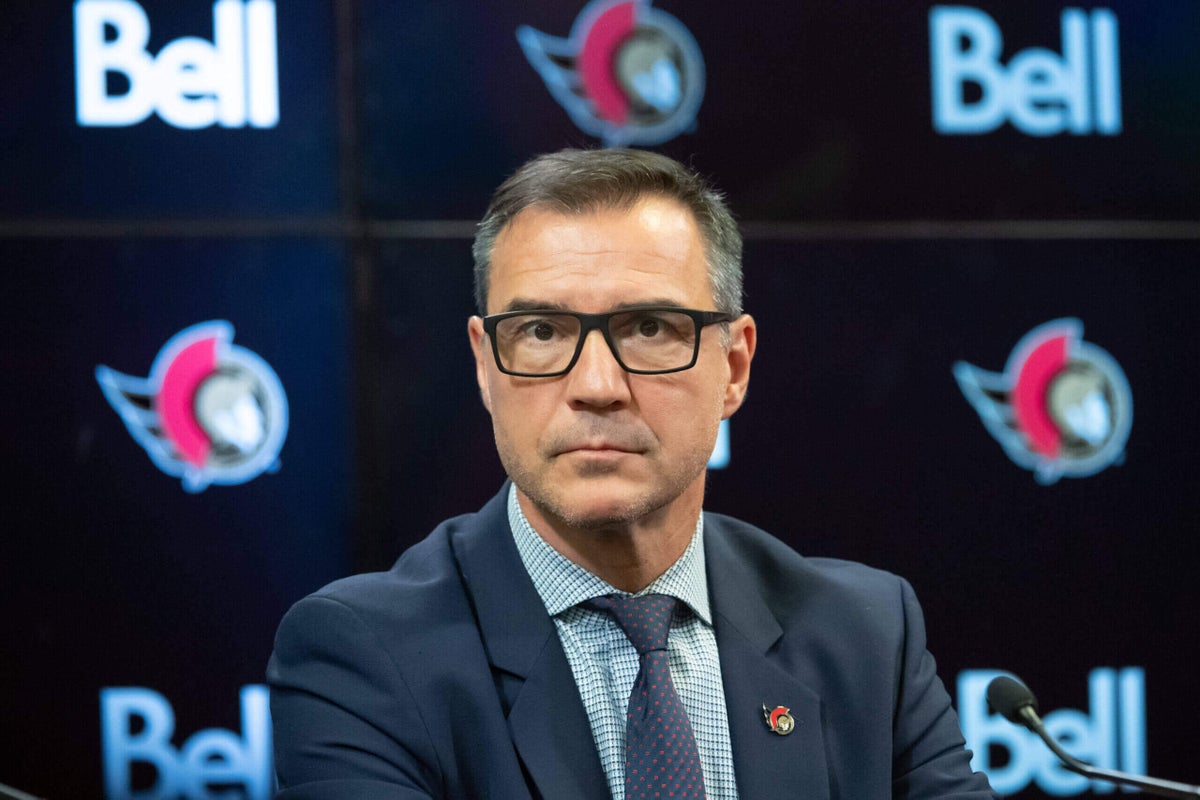By Alex Adams

OTTAWA — For many years, the NHL draft was a significant focus for the Ottawa Senators, representing a source of hope born from the frustration of consistently missing the playoffs.
That situation has changed. Having ended their postseason drought, the Senators now hold the 21st overall selection in the upcoming draft.
This feels different in Ottawa. While the future remains intriguing, the immediate present holds greater importance for both the fans and, to some degree, the organization.
Typically, after a team makes the leap to the playoffs, the general manager becomes aggressive in pursuing players who can make an immediate impact. However, the Senators face a limitation: their system is not currently rich with prospects.
After trading away first-round picks in three consecutive years, the team possesses only one elite prospect: last year’s seventh overall pick, Carter Yakemchuk. Compounding this is the impending loss of the team’s first-round pick next year, a consequence of the problematic Evgenii Dadonov trade.
Therefore, the more cautious approach for GM Steve Staios might be to retain the pick and select a promising young player. Nevertheless, Staios maintains that `everything is on the table,` suggesting a possibility that he could trade the pick for an established piece, such as Rasmus Andersson from Calgary or J.J. Peterka from Buffalo.
Regarding prospects, in Staios’s first draft last year, all seven of Ottawa’s selections were six-foot-two or taller. While Staios downplayed the emphasis on size, it will be interesting to see if this trend continues this year.
If the Senators do use the 21st pick, they will likely choose the best player available, as Ottawa is not in a position to draft based on specific needs given the limited talent in its pipeline. It might also be a smart move for the Senators to trade down from the 21st spot to acquire some much-needed additional draft capital.
Draft Picks
- First (21st overall)
- Third (via Florida)
- Fourth (via San Jose)
- Fifth
- Sixth
- Seventh
Potential Round 1 Options
Jack Nesbitt, C, 6-foot-4, 185 pounds, Windsor Spitfires (OHL)
Nesbitt was highlighted by scouting expert Jason Bukala as a potentially ideal fit for Ottawa. He is a big forward capable of playing both centre and wing, known for high-end competitiveness and excellent net-front presence. He excels in the bumper position on the power play. Nesbitt recorded 25 goals and 64 points in Windsor last season.
Bill Zonnon, C, 6-foot-2, 190 pounds, Blainville-Boisbriand Armada (QMJHL)
Zonnon is likely a player who could still be available for the Senators at 21. Bukala describes him as a “Brady Tkachuk lite,” which would be appealing to Senators fans. Zonnon is highly competitive, big, strong, and dominant in front of the net. Similar to Tkachuk, his skating is not exceptional, but he consistently engages in battles. If his skating improves, he could become a strong NHL contributor.
Blake Fiddler, D, 6-foot-4, 209 pounds, Edmonton Oil Kings (WHL)
Fiddler fits the profile of a second-pairing, shutdown defenseman. He is big, strong, consistently in good defensive position, blocks shots, and is an excellent skater. His father, Vernon Fiddler, played in the NHL. He is unlikely to be a major point producer at the next level but could develop into an ideal elite defensive anchor for the Senators.
Malcolm Spence, LW, 6-foot-1, 203 pounds, Erie Otters (OHL)
If the Senators prioritize high potential, Spence is a strong candidate. He generates offense through his size, speed, and skill. However, questions have been raised about his consistency and motor. The Senators have typically avoided players without an elite competitive drive, but Spence`s best shifts arguably surpass those of the previously mentioned players. He scored 32 goals and 73 points with Erie.
Update on Last Year`s Top Pick
Some observers, including this writer, believed Yakemchuk might challenge for a spot with the Senators out of training camp last season. However, following his promising pre-season, his performance in the Western Hockey League left scouts somewhat unimpressed. Despite this, Senators management was pleased with his play in the WHL, and Bukala regards him as a `workhorse.` Yakemchuk`s production dipped from over a point-per-game in his draft year to 49 points in 56 games with the Calgary Hitmen this season.
Yakemchuk possesses smooth hands, a strong competitive spirit, exceptional strength and physicality, and a creative offensive mindset complemented by a powerful shot. However, his skating still requires refinement. During training camp last season, he mentioned to reporters that improving his skating was a key focus.
According to Bukala, other significant areas for improvement in Yakemchuk’s game—keeping in mind he is only 19—are his defensive play and puck recoveries at five-on-five. Last season in the defensive zone, he frequently lost coverage for a junior-level player, which led to Calgary not using him on the penalty kill. If he can develop his defensive game, he has the potential to become an elite NHL defenseman.
Some within the Senators organization feel Yakemchuk could be ready for the NHL this coming season, while Bukala remains skeptical. This writer also holds reservations, but with Nick Jensen’s injury creating a significant void on the right side of the Senators` defense corps, the opportunity is present. The Senators may already regret passing on Zeev Buium, the defenseman who went to the Minnesota Wild and debuted in the playoffs. Yakemchuk’s progress this season and beyond—whether he plays in the American Hockey League or Ottawa—will be a crucial storyline to follow as the Senators aim to transition from a playoff team to a top contender. No pressure, kid.

